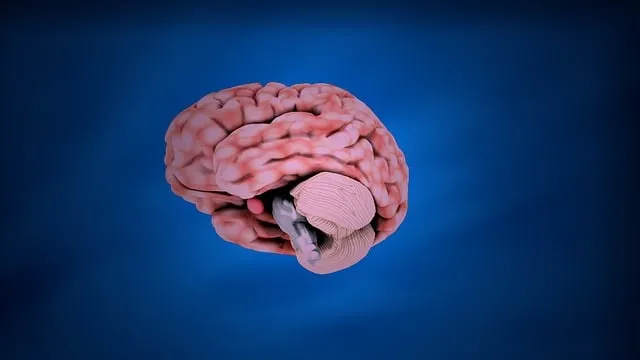Northglenn Kaiser mental health programs emphasize risk management through Emotional Intelligence training, burnout prevention, and self-care routines for professionals. Their tailored approach includes comprehensive risk assessments, depression prevention strategies, clear communication channels, and Compassion Cultivation Practices. Regular positive thinking training and peer support networks enhance resilience, fostering a safe environment for both patients and practitioners while prioritizing holistic well-being.
Mental health professionals face unique challenges, with patient risk assessment and management as critical components of their practice. This article explores essential strategies for navigating these complexities, drawing on the comprehensive risk management approach developed by Northglenn Kaiser mental health programs. We’ll delve into understanding various risks in mental health settings, key components of an effective risk plan, and successful implementation strategies. By adopting these practices, professionals can enhance patient safety and foster healthier outcomes.
- Understanding Risk in Mental Health Practice
- The Northglenn Kaiser Approach to Risk Management
- Essential Components of a Comprehensive Risk Plan
- Implementation and Continuous Improvement Strategies
Understanding Risk in Mental Health Practice

In the realm of mental health practice, understanding risk is paramount to effective and safe patient care. Risk in this context encompasses various factors that can impact both patients and healthcare providers, including emotional vulnerabilities, trauma histories, and potential triggers within the therapeutic environment. Mental health professionals at Northglenn Kaiser mental health programs are trained to recognize these risks and develop strategies to mitigate their effects.
Emotional Intelligence and Social Skills Training play a crucial role in navigating these complexities. By fostering strong emotional awareness and effective communication, healthcare providers can build safer, more supportive relationships with patients. Additionally, Burnout Prevention Strategies for Healthcare Providers are essential tools to maintain resilience and prevent potential risks associated with chronic stress and fatigue. These strategies ensure that mental health professionals in Northglenn Kaiser mental health programs can continually provide high-quality care while safeguarding their own well-being.
The Northglenn Kaiser Approach to Risk Management

The Northglenn Kaiser Approach to Risk Management is a comprehensive framework designed specifically for mental health professionals, emphasizing proactive strategies to mitigate risks and promote well-being. This approach integrates self-care routines as a cornerstone of their practice, recognizing that mental health professionals’ own well-being directly impacts client outcomes. By implementing structured Self-Care Routine Development for Better Mental Health, therapists can enhance their resilience and reduce burnout, ultimately improving their ability to provide effective support.
This method encourages professionals to prioritize Self-Esteem Improvement and Coping Skills Development not only in themselves but also in their clients. Through tailored interventions, mental health practitioners at Northglenn Kaiser aim to create a safe environment where individuals can navigate challenges, fostering growth and recovery. The approach’s focus on holistic well-being ensures that professionals are equipped to offer high-quality care while maintaining a healthy work-life balance.
Essential Components of a Comprehensive Risk Plan

A comprehensive risk management plan for mental health professionals should encompass several vital components to effectively mitigate potential risks and promote a safe work environment, especially within the context of Northglenn Kaiser mental health programs. Firstly, it’s crucial to conduct thorough risk assessments that identify specific hazards, such as complex patient cases or high-stress situations, which can trigger adverse events. This involves regularly reviewing patient records and evaluating the need for additional support or resources.
Secondly, integrating depression prevention strategies into the risk plan is essential. Mental health awareness training and self-awareness exercises can empower professionals to recognize early signs of burnout or depression among themselves and their colleagues. Additionally, establishing clear communication channels and crisis intervention protocols ensures that professionals have access to immediate support when navigating challenging situations, fostering a culture of resilience within Northglenn Kaiser mental health programs.
Implementation and Continuous Improvement Strategies

Implementing effective risk management strategies is an ongoing process that requires a dedicated approach to continuous improvement. Mental health professionals at Northglenn Kaiser mental health programs recognize the importance of fostering a culture of resilience and adaptability. By integrating Compassion Cultivation Practices, which encourage empathy and self-care, into their daily practices, they create a supportive environment where both patients and practitioners can thrive.
Regular training sessions focused on enhancing Positive Thinking and cultivating Inner Strength Development are integral to this process. These strategies empower professionals to navigate challenging situations with greater clarity and composure. Through peer support networks and regular feedback mechanisms, Northglenn Kaiser encourages open communication, allowing for the early identification of potential risks and the implementation of timely interventions. This proactive approach ensures that the well-being of both patients and practitioners remains a top priority, ultimately enhancing the overall quality of mental health services provided.
Mental health professionals face unique challenges, making robust risk management planning essential. By adopting strategies like the Northglenn Kaiser approach, which emphasizes proactive hazard identification and mitigation, practitioners can create a safer environment for clients and themselves. A comprehensive risk plan, incorporating key components such as policy development and staff training, is vital to fostering resilient mental health programs (Northglenn Kaiser mental health programs). Continuous improvement through regular reviews ensures these strategies remain effective in navigating the dynamic landscape of mental health care.






